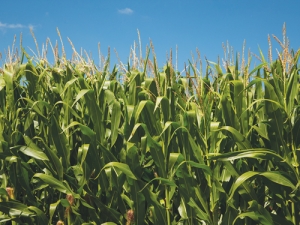Subsidies keeping wind, solar generation viable
OPINION: I recently wrote an open letter to the Prime Minister because at a recent Federated Farmers meeting, Chris Luxon told me wind and solar generation is not subsidised.
 The symposium focuses mainly on the biotechnologies that could result in yield increases, better nutritional qualities, improved productivities of crops, livestock, fish and trees.
The symposium focuses mainly on the biotechnologies that could result in yield increases, better nutritional qualities, improved productivities of crops, livestock, fish and trees.
Exploring how agricultural biotechnologies can benefit small-holder farmers particularly in developing countries will be the subject of an international symposium next month.
The UN Food and Agricultural Organisation (FAO) is hosting the symposium 'The Role of Agricultural Biotechnologies in Sustainable Food Systems and Nutrition' at its headquarters in Italy from February 15-17. The event will be webcast live.
The contribution of a wide spectrum of biotechnologies to sustainable food systems and nutrition will be covered. A high-level ministerial segment will take place on February 16.
The symposium focuses mainly on the broad range of biotechnologies that could result in yield increases, better nutritional qualities, improved productivities of crops, livestock, fish and trees.
These biotechnologies encompass a wide range of low-tech to high-tech approaches which can make the development of improved varieties and breeds that adapt to the effects of climate change, faster and more efficient.
The focus is on agricultural biotechnologies that are currently available and ready to use by smallholder producers, including low-tech approaches involving artificial insemination, fermentation techniques, biofertilisers etc. up to high-tech approaches involving advanced DNA-based methodologies
While the symposium encompasses genetically modified organisms (GMOs), they are not its main focus.
Students from several universities around the world will be able to participate in an online interactive session to identify and convey key messages to policy and decision makers.
Donald Trump's latest tariff tantrum has again thrown the world of trade into a new round of turmoil and uncertainty, and NZ is caught up in it.
The third edition of the NZ Dairy Expo, held in mid-February in Matamata, has shown that the KISS principle (keep it simple stupid) was getting a positive response from exhibitors and visitors alike.
Twenty years ago, South African dairy farm manager Louis Vandenberg was sent to a farm in Waikato to provide training on Afimilk technology.
Strong farmgate milk price is helping boost investment on farms, says PGG Wrightson chief executive Stephen Guerin.
Fonterra's 460 milk suppliers in Australia, who will switch to Lactalis end of this month, are unfazed with the impending change.
The 5+ A Day Charitable Trust has launched a collection of affordable recipes designed to turn everyday vegetables into seasonal stars.

OPINION: A mate of yours truly reckons rural Manawatu families are the latest to suffer under what he calls the…
OPINION: If old Winston Peters thinks building trade relations with new nations, such as India, isn't a necessary investment in…